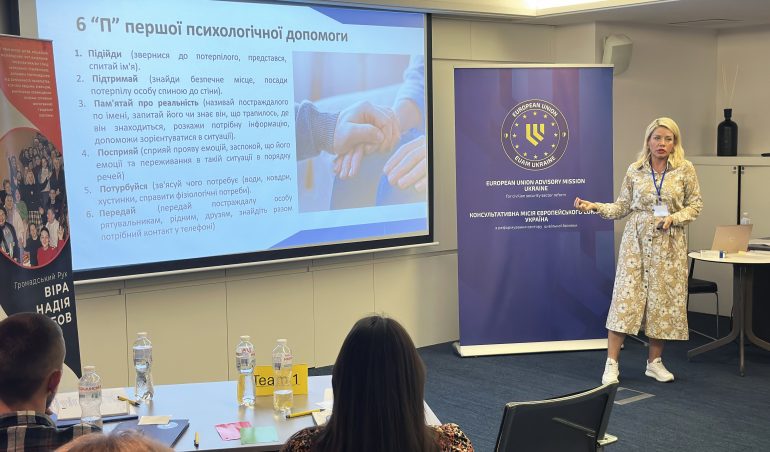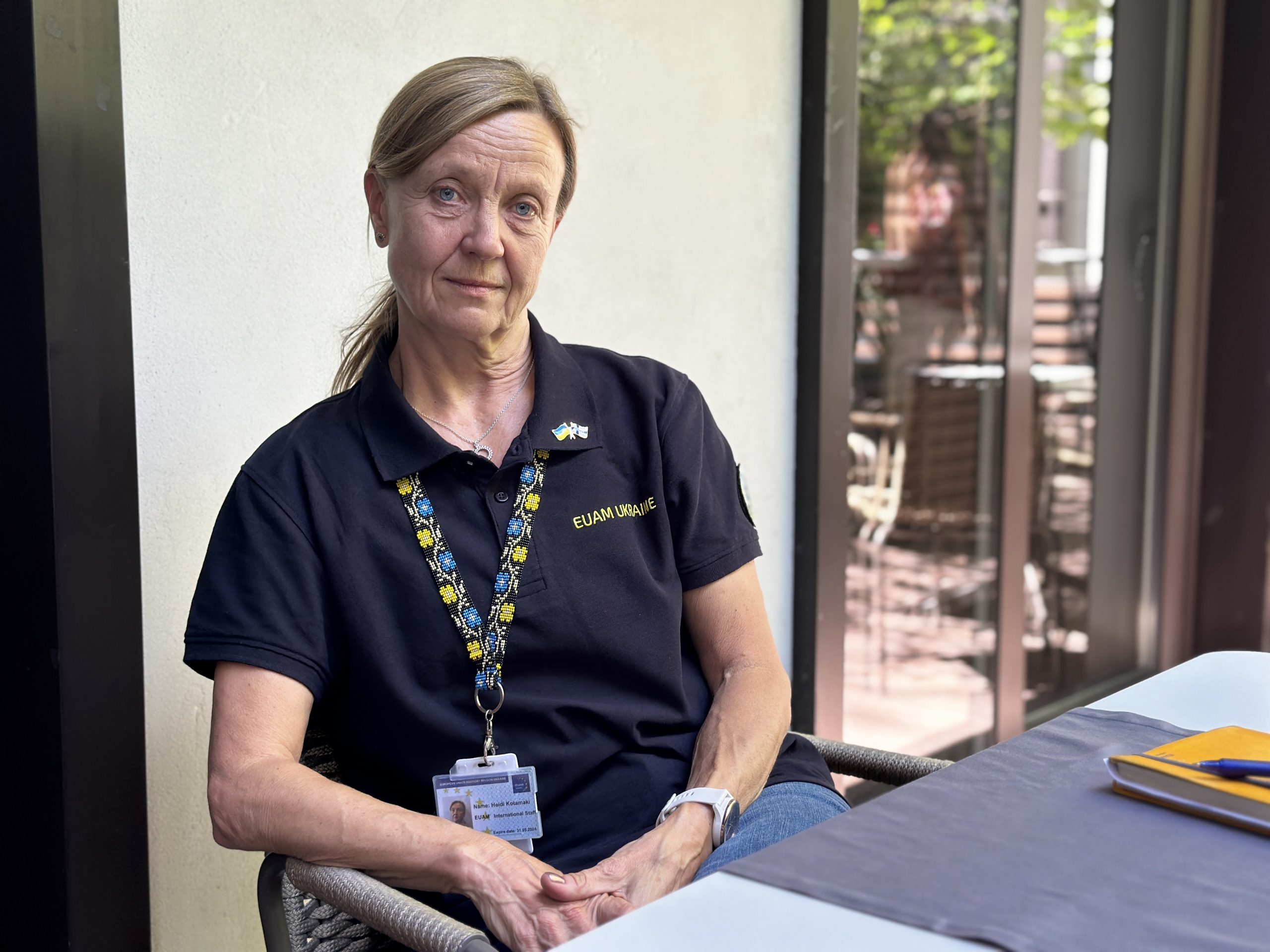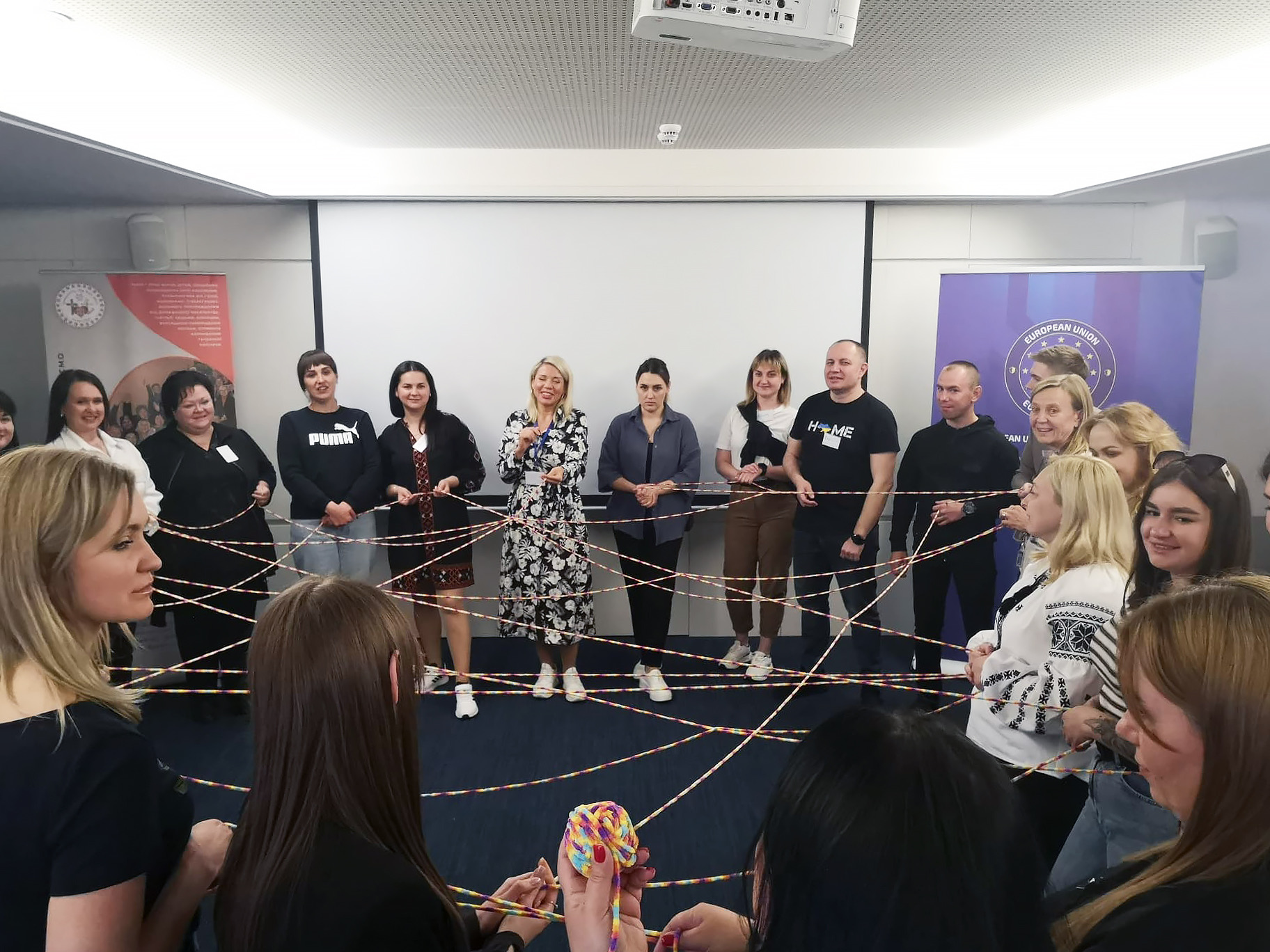EUAM Ukraine Boosts National Police Resilience with Stress Management Training
May 24, 2024
Police work is challenging in many ways, but it could be even more complicated when it requires operating close to the front line. Aside from being well-prepared to security threats, law-enforcement officers who work, for example, in Mykolaiv and Kherson regions, should be stress-resilient, capable of identifying and assisting psychologically traumatized persons, and, of course, understand how to protect their mental health.
Since September 2023, the EUAM Field Office in Odesa and the National Police of Mykolaiv and Kherson regions have been working closely to equip police officers with psychological first aid skills. Special attention is paid to officers who operate close to the front line and support civilians residing in dangerous areas.

During the last training session, we talked to Heidi Kotamaki, EUAM Adviser/Trainer on Community Policing from Finland, who leads these activities in the Odesa Field Office. She shared more details about the EUAM activities implemented in the South of Ukraine.
Could you please share what has already been done to build the stress resilience of police officers in Mykolaiv and Kherson regions up to this point?
We conducted one study visit to Poland and facilitated four training sessions on psychological first aid and stress management in Mykolaiv and Odesa. 88 police officers, including eight psychologists from NPU, attended training sessions conducted in cooperation with the NGO Faith, Hope, and Love. The work in this area will continue through the Mission’s new mandate, which starts on 1 June 2023 and is valid for three years.
You have mentioned a study visit to Poland. What is it about?
It was an incredible idea to bring 20 psychologists from NPU and universities of the Ministry of Internal Affairs (MoIA) to the Sudeten Mental Health Centre in Jelenia Góra. This centre specializes in mental health support for police officers. It happened in September 2023. The feedback from participants was excellent. As a perfect example, the Odesa MoIAUniversity professor integrated many new techniques in the study program for future police officers.
Let us concentrate more on today’s training. Were the previous three sessions conducted in Mykolaiv and Odesa the same? What topics do you pay particular attention to?
Yes, all the training sessions have the same agenda. The main idea is to give participants the necessary tools to identify stress and be capable of providing first aid. This means that whenever trained police officers are on duty, they can support their fellow officers and civilians. Finally, we also pay attention to the topics of emotional burnout and self-resilience.

Nowadays, the National Police experience a lack of Psychological Support Unit officers who have the particular expertise to deal with traumas and mental disorders. That is why it is essential to support usual police officers who work with civilians close to the front line daily.
Can you share the feedback for participants from the first three training sessions? Did they consider events to be beneficial for them?
The participants have found the knowledge we shared essential for their daily activities. The police officers from the Kherson region appreciated the training course and the safe and secure environment we put them in every time for these training sessions. Today, I as EUAM representative, their colleague and just a human being, am happy to take them away from Mykolaiv and Kherson and their everyday work that is insecure both mentally and physically. Such a change in environment gave them a chance to absorb the information the trainer gave more quickly.
What is the way forward for your cooperation with the National Police on this topic?
Within the frame of the new EUAM Mandate, we plan to put more effort into building the resilience of fellow NPU colleagues by providing training and workshops at the leadership level. Another aspect is to assist the Psychological Support Units of civil security sector agencies in the Odesa region. This will give law-enforcement psychologists the necessary skills to share their knowledge with usual police officers, creating long-term solutions.


